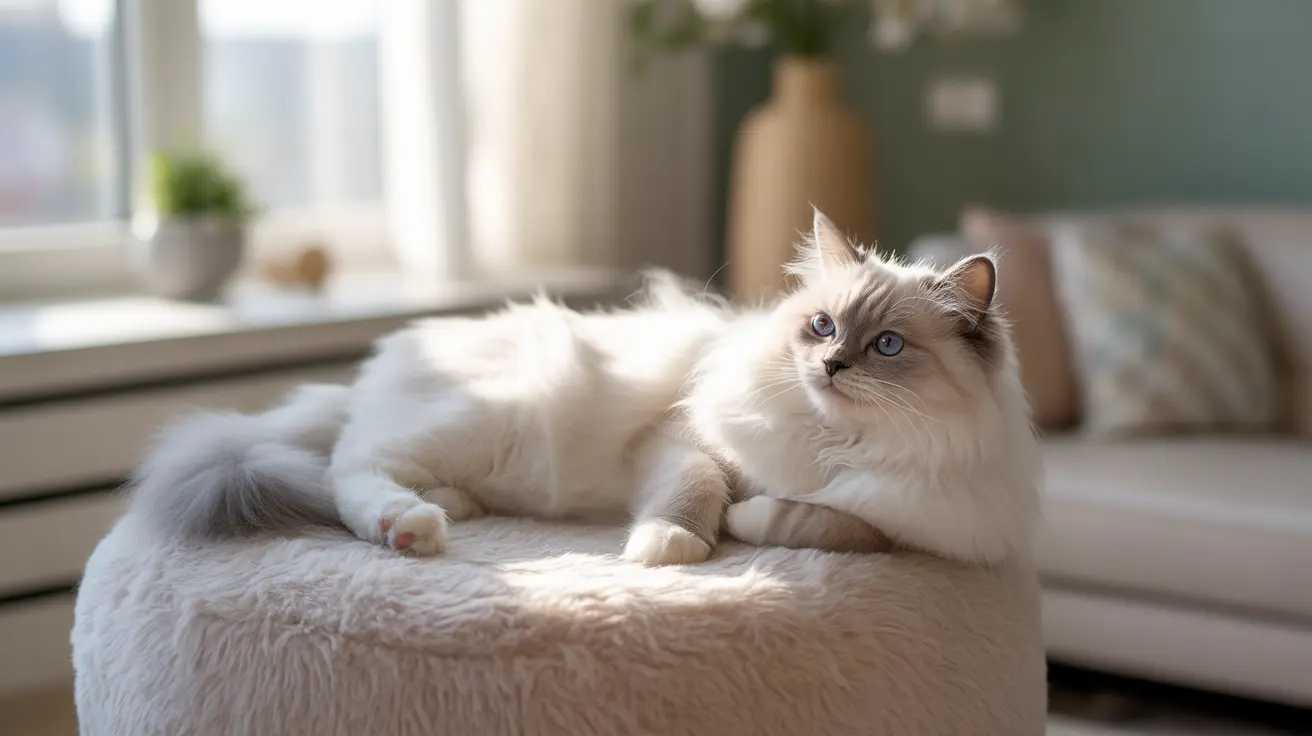Feline AIDS, medically known as Feline Immunodeficiency Virus (FIV), is a significant health concern affecting cats worldwide. This condition, while serious, doesn't have to be a death sentence for your feline companion. Understanding the nature of this disease and proper management techniques can help your FIV positive cat live a long, fulfilling life.
Just as HIV affects humans, FIV impacts a cat's immune system, making them more susceptible to various infections and illnesses. However, with proper care and management, many FIV positive cats can maintain good health for years after diagnosis.
Understanding Feline AIDS and Its Impact
Feline AIDS progressively weakens a cat's immune system, making it harder for them to fight off common infections. The virus belongs to the retrovirus family and specifically targets the cat's immune cells, slowly diminishing their ability to combat disease.
Unlike many other viral infections, FIV has a remarkably long incubation period. Cats can appear perfectly healthy for years before showing any symptoms, which makes regular veterinary check-ups crucial for early detection and management.
Living with an FIV Positive Cat
Having an FIV positive cat doesn't mean you need to drastically change your lifestyle or isolate your pet. These cats can live normal, happy lives with proper care and attention. The key is maintaining a stress-free environment and implementing preventive health measures.
Essential care tips include:
- Keeping your cat indoors to prevent disease transmission
- Providing a balanced, nutritious diet
- Maintaining regular veterinary check-ups
- Addressing any health issues promptly
- Creating a calm, stable environment
Prevention and Transmission
FIV transmission primarily occurs through deep bite wounds, typically during aggressive encounters between cats. The virus is present in infected cats' saliva, making fighting and biting the main routes of transmission. This is why outdoor cats, particularly unneutered males who are more likely to fight, are at higher risk.
Prevention strategies include:
- Spaying or neutering cats to reduce aggressive behavior
- Keeping cats indoors
- Testing all new cats before introducing them to your household
- Separating infected cats from non-infected ones if they show aggressive behavior
Treatment Options and Management
While there's no cure for feline AIDS, various treatment options can help manage the condition and its complications. The focus is on maintaining the cat's overall health and treating secondary infections as they arise.
Management approaches include:
- Regular health monitoring
- Prompt treatment of secondary infections
- Nutritional supplements when needed
- Stress reduction
- Environmental management to minimize exposure to pathogens
Frequently Asked Questions
How is FIV transmitted to cats, and what are the most common risks for infection?
FIV is primarily transmitted through deep bite wounds during cat fights. The most common risk factors include being an outdoor cat, being unneutered, and living in areas with high stray cat populations. The virus can also rarely be transmitted from an infected mother cat to her kittens.
What are the typical symptoms of FIV in cats, and when do they usually appear?
Symptoms often don't appear for years after infection. When they do manifest, common signs include recurring infections, dental problems, weight loss, fever, and poor coat condition. The disease progresses through three stages: acute, asymptomatic, and terminal.
How can I manage and care for an FIV-positive cat to ensure a healthy life?
Provide a stress-free indoor environment, regular veterinary check-ups, proper nutrition, and prompt medical attention when needed. Keep their environment clean and maintain good preventive care practices, including dental hygiene.
Is there a cure or treatment for FIV in cats, or are there any effective management strategies?
While there's no cure for FIV, effective management strategies include treating secondary infections, maintaining good nutrition, regular veterinary care, and keeping the cat indoors. Some cats may benefit from immune-supporting supplements under veterinary guidance.
How can I prevent the spread of FIV in my household, especially if I have multiple cats?
Test all cats in the household, separate aggressive cats, spay/neuter all cats to reduce fighting, and maintain a peaceful environment. New cats should be tested before introduction, and FIV-positive cats should ideally be kept indoors.






